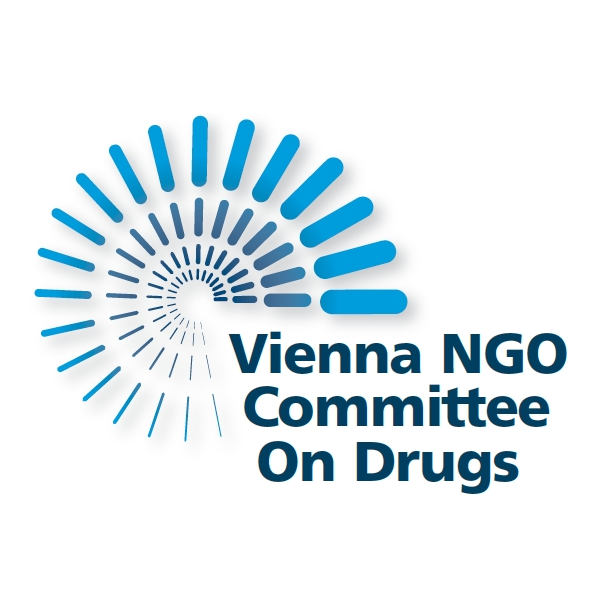In preparations for the ministerial segment of the 62nd session of the Commission of Narcotic Drugs (CND), to be held in 2019, the Commission hosted a number of thematic discussions in autumn.
For each thematic segment 4-5 NGOs had the possibility to present their work and positioning. In order to ensure an inclusive, comprehensive and meaningful civil society participation NGOs worked through the Civil Society Task Force (CSTF) to coordinate contributions.
The following civil society representatives were selected to speak at the October & November intersessionals.
22 October 2018
Supply reduction and related measures
- Reducing the illicit supply of drugs;
- Effective law enforcement and responses to drug-related crime;
- Countering money-laundering and promoting judicial cooperation;
- Eliminating or reducing significantly and measurably the illicit cultivation of opium, poppy, coca bush and cannabis plant;
- Eliminating or reducing significantly and measurably the illicit production, manufacture, marketing and distribution of, and trafficking in, psychotropic substances, including synthetic drugs;
- Eliminating or reducing significantly and measurably money-laundering related to illicit drugs
Civil Society Speakers:
- Panelist: Daniel Joloy (Amnesty International, United Kingdom)
– Statement - Belarmino Carlos Langa (UNIDOS, Mozambique)
– Video Message - Juliana Miranda (Centro de Estudios Legales y Sociales (CELS), Argentina)
– Video Message - Olivia Rope (Penal Reform International, United Kingdom)
– Video Message - Carlos Humberto Romero Vergara (Observatory of ilicit crops and crops producers (OCCDI global), Colombia)
– Video Message
23 October 2018
Cross-cutting issues in addressing and countering the world drug problem evolving reality, trends and existing circumstances, emerging and persistent challenges and threats, including new psychoactive substances,
- in conformity with the three international drug control conventions and other relevant international instruments;
- eliminating or reducing significantly and measurably the diversion of and illicit trafficking in precursors
Civil Society Speakers:
- Panelist: Ola Byelyayeva (Eurasian Harm Reduction Association, CEECA)
– Presentation, Statement - Lul Admasachew (Higher Education Leadership, Ethiopia)
– Video Message - Tania Ramirez (México Unido Contra la Delincuencia (MUCD- Mexico United Against Crime))
– Statement, Presentation - Martin Horton-Eddison (Global Drug Policy Observatory, United Kingdom)
– Statement, Presentation - Gretchen Burns Bergman (A New PATH (Parents for Addiction Treatment & Healing), USA)
– Video Message
24 October 2018
Alternative development
- regional, interregional and international cooperation on development-oriented balanced drug control policy; addressing socioeconomic issues;
- International cooperation on eradicating the illicit cultivation of crops used for the production of narcotic drugs and psychotropic substances and on alternative development;
- Crop control strategies, including inter alia: alternative development and, where appropriate preventive alternative development programmes; eradication; law enforcement measures;
Civil Society Speakers:
- Panelist: Martin Jelsma (Transnational Institute (TNI), Netherlands)
– Statement - André Øystein Schjetne (Stiftelsen Golden Colombia (Golden Colombia Foundation), Norway/Colombia)
– Statement - Nang Yon (Myanmar Opium Farmers Forum (MOFF))
– Video Message - Roxana Argandoña (Andean Information Network, Bolivia)
– Video Message
25 October 2018
Preparations for the ministerial segment to be held during the 62nd session of the CND
- The road ahead: towards a one-track approach in implementing beyond 2019 the commitments made by the international community to address and counter the world drug problem29, and in strengthening and streamlining its existing data collection systems;
- Outstanding issues and organizational arrangements;
7 November 2018
Morning: Implementation of the international drug control treaties (Normative Segment)
Afternoon: Strengthening international cooperation based on the principle of common and shared responsibility
- Enhancing international cooperation, including technical assistance, to assist the States most affected by the illicit transit of drugs, especially developing countries;
- Strengthening cooperation efforts at the bilateral, regional and global levels to reduce demand for synthetic opioids for non-medical use and to counter illicit trafficking in synthetic opioids;
- Cooperation and collaboration between the Commission on Narcotic Drugs and the United Nations Office on Drugs and Crime, as well as WHO, INCB and with all relevant United Nations entities and international financial institutions, within their respective mandates;
Civil Society Speakers:
- Panelist: Paul Kogi Mburu (Soberlife Mentorship Society, Kenya)
– Statement - Professor John Toumbourou (Deakin University and Dalgarno Institute, Australia)
– Statement, Presentation - Rajesh Didiya (SURUWAT, Nepal)
– Video Message - John M. Walsh (Washington Office on Latin America (WOLA), USA)
– Statement
8 November 2018
Taking stock of the implementation of the commitments made to jointly address and counter the world drug problem, in particular in light of the decision to establish 2019 as a target date for the goals set in paragraph 36 of the Political Declaration
Civil Society Speakers:
- Panelist: Ann Fordham (International Drug Policy Consortium (IDPC), United Kingdom)
– Statement - Hussein Abdalla Tayab (Muslim Education and Welfare Association (MEWA), Kenya)
– Statement - Peter Sarosi (Rights Reporter Foundation, Hungary)
– Statement - Brun González Aguilar (International Network of People who use Drugs (INPUD), International)
– Statement, Presentation
9 N0vember 2018
Preparations for the ministerial segment to be held during the 62nd session of the CND
- Consideration of an outline for the reconvened 61st session:
- The road ahead: towards a one-track approach36 in implementing beyond 2019 the commitments
made by the international community to address and counter the world drug problem, and in strengthening and streamlining its existing data collection systems; - Organizational arrangements;
